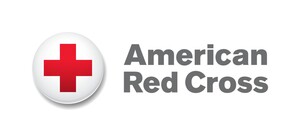
New Course Empowers Bystanders to "Be the help until help arrives"
Online course from American Red Cross and American College of Emergency Physicians teaches what to do if first on the scene of an emergency
WASHINGTON, March 1, 2023 /PRNewswire/ -- In an emergency, bystanders can be a critical lifeline until professionals arrive, yet nearly half of U.S. adults are unprepared to help in a medical crisis, according to a recent survey from the American College of Emergency Physicians (ACEP). However, four in five adults (81%) said they would be willing to help in an emergency if they took a training course.
Given their ongoing commitment to providing lifesaving education, the American Red Cross and ACEP released a course today called "Until Help Arrives" designed to educate and empower bystanders to take action and provide lifesaving care if they are first on the scene during an emergency.
The 90-minute online course covers five fundamental actions that can be taken during a life-threatening emergency that can help sustain or save a life until EMS arrives:
- Hands-only CPR (no breaths)
- Automated external defibrillator (AED) education
- Choking education
- Severe bleeding control, including use of a tourniquet
- Administering naloxone for an opioid overdose.
"This course is designed to offer bystanders basic information that gives them confidence to take immediate action when minutes matter," said Dominick Tolli, senior vice president of Training Services for the Red Cross. "These five foundational skills, taken together, address the most pressing emergency needs someone is likely to be called upon for help."
Training is strongly correlated to taking action. Nine-in-ten adults trained in any form of emergency response skill (91 percent) are willing to take action in an emergency, according to the ACEP survey.
"We are very proud to collaborate with the American Red Cross on this important program," said Christopher S. Kang, MD, FACEP, president of ACEP. "With the right knowledge, anyone can respond if a medical emergency occurs. This course can educate millions of potential lifesavers with basic, easy-to-remember training, empowering them to be the help, until help arrives."
The course is available on redcross.org/UntilHelpArrives. Because it is online only, it does not meet OSHA requirements for First Aid/CPR/AED training with psychomotor skills practice.
The American Red Cross shelters, feeds and provides emotional support to victims of disasters; supplies about 40 percent of the nation's blood; teaches skills that save lives; provides international humanitarian aid; and supports military members and their families. The Red Cross is a not-for-profit organization that depends on volunteers and the generosity of the American public to perform its mission. For more information, please visit redcross.org or cruzrojaamericana.org, or visit us on Twitter at @RedCross.
The American College of Emergency Physicians (ACEP) is the national medical society representing emergency medicine. Through continuing education, research, public education, and advocacy, ACEP advances emergency care on behalf of its 40,000 emergency physician members, and the more than 150 million people they treat on an annual basis. For more information, visit www.acep.org and www.emergencyphysicians.org. Contact: Steve Arnoff | [email protected] | Twitter @EmergencyDocs
SOURCE American Red Cross








Share this article